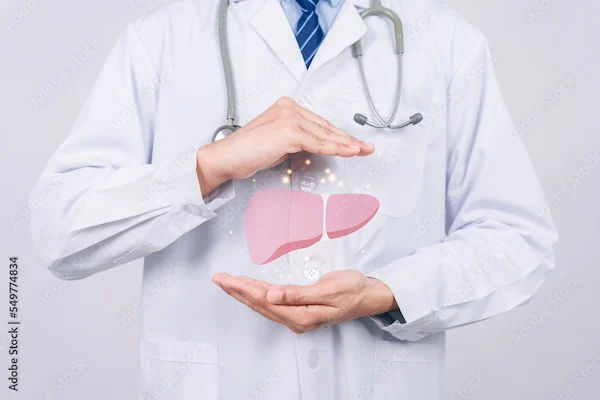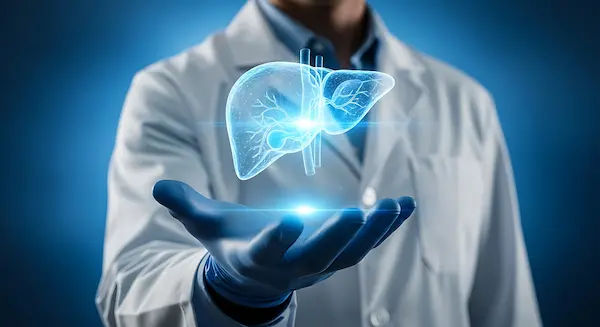Guide to Conquering Hepatitis B And C Infections
Master your health journey! Our comprehensive guide offers practical strategies and vital insights to effectively manage, treat, and conquer Hepatitis B and C infections. Get the facts you need to take control."


Introduction
Hepatitis B and C infections are more than just medical terms; they are global health challenges affecting millions. Often called "silent epidemics" because they can cause significant liver damage for years without any obvious symptoms, understanding them is the first step to conquering them. This guide moves beyond fear and misinformation to provide you with a clear, actionable plan. Whether you're looking to protect yourself, support a loved one, or manage a recent diagnosis, we will walk you through everything from prevention and early detection to the modern, highly effective treatments available today. You’ll learn that a hepatitis diagnosis is not a life sentence but a manageable condition, and in the case of Hepatitis C, even a curable one. Let's demystify these infections and empower you with knowledge.
What Are Hepatitis B and C? More Than Just Liver Inflammation
Hepatitis simply means inflammation of the liver. While alcohol, toxins, and other viruses can cause it, Hepatitis B and C are specific viral infections that target the liver. They are caused by completely different viruses, which means they spread, are treated, and are prevented in distinct ways.
Hepatitis B: The Stealthy Chronic Threat
The Hepatitis B virus (HBV) is a DNA virus known for its ability to integrate into a person's liver cells. For many adults, the immune system can fight off an acute infection. However, when infants or young children contract it, their immune systems often fail to clear the virus, leading to a chronic hepatitis B infection. This chronic state can last a lifetime, potentially leading to serious complications like cirrhosis (scarring of the liver) and liver cancer if not properly managed. It's a global issue, with the WHO estimating 296 million people living with chronic HBV in 2019.
Hepatitis C: The Curable Silent Epidemic
The Hepatitis C virus (HCV) is an RNA virus. Unlike HBV, most people who contract HCV (about 70-85%) will develop a chronic hepatitis C infection. For decades, treatment was difficult with low success rates, earning it its "silent epidemic" status. However, the medical landscape has transformed. The development of Direct-Acting Antivirals (DAAs) has made Hepatitis C highly curable in over 95% of cases with just 8-12 weeks of oral medication. The challenge remains identifying the millions who are infected but unaware.
Consult Top Specialists
How Do You Get Hepatitis B and C? Know Your Risks
Understanding transmission is crucial for prevention and addressing stigma. Both are blood-borne pathogens, but their efficiency of transmission varies.
Modes of Transmission for Hepatitis B
HBV is highly infectious and can be found in blood, semen, and other body fluids. Common routes include:
- From mother to child: During childbirth (the most common route of infection globally).
- Unprotected sexual contact.
- Sharing needles or syringes: This includes equipment for injecting drugs, tattoos, or piercings in unregulated settings.
- Sharing personal items: Such as razors or toothbrushes with an infected person.
- Needlestick injuries: Primarily a risk for healthcare workers.
How Hepatitis C Spreads
HCV is primarily spread through direct blood-to-blood contact. The most common route is:
Sharing needles or other equipment used to prepare and inject drugs (now the most common route in many countries).
Other, less common routes include:
- Needlestick injuries in healthcare settings.
- From an infected mother to her baby (though this is less common than with HBV).
- Unsterilized medical equipment and transfusions of unscreened blood (now rare in most developed countries).
- Sharing personal items contaminated with blood (e.g., razors, nail clippers).
Common Misconceptions and What NOT to Worry About
You cannot get Hepatitis B or C from:
- Casual contact like hugging, shaking hands, or kissing.
- Sharing food, water, or eating utensils.
- Coughing or sneezing.
- Breastfeeding (unless nipples are cracked and bleeding, in the case of HCV).
This knowledge is vital to reducing the unwarranted fear and social isolation sometimes faced by those diagnosed.
Recognizing the Enemy: Symptoms of Hepatitis B and C Infections
The insidious nature of these viruses lies in their often asymptomatic presentation.
Acute Phase Symptoms: The First Warning Signs
If symptoms do appear shortly after infection (acute phase), they are often flu-like and non-specific. For both HBV and HCV, these can include:
- Fatigue and mild fever
- Loss of appetite, nausea, and vomiting
- Abdominal pain, especially on the right side under the ribs
- Dark urine and clay-colored stools
- Joint pain
- Jaundice (yellowing of the skin and eyes) – a classic sign of liver distress
Chronic Infection: When Symptoms Go Silent but Damage Continues
This is the most dangerous phase. Many people with chronic hepatitis B or C infection experience no symptoms for 20-30 years. During this time, the virus slowly causes inflammation and fibrosis (scarring) in the liver. Persistent,
unexplained fatigue is sometimes the only clue.
Signs of Advanced Liver Disease: Cirrhosis and Liver Cancer
When the liver becomes severely scarred (cirrhosis), symptoms become more apparent and serious:
- Easy bruising or bleeding
- Swelling in the legs, ankles, or feet (edema)
- Fluid accumulation in the abdomen (ascites)
- Intense itching
- Spider-like blood vessels on the skin (spider angiomas)
- Confusion, slurred speech, and drowsiness (hepatic encephalopathy)
If you experience any persistent symptoms, especially jaundice or abdominal swelling, it is crucial to consult a doctor. You can book a physical visit to a specialist with Apollo24|7 for a comprehensive evaluation.
Getting a Diagnosis: The First Step to Conquering Hepatitis
Early diagnosis is power. A simple blood test can set you on the path to management or a cure.
Essential Blood Tests and What They Mean
- For Hepatitis B:
- HBsAg (Hepatitis B surface antigen): The primary test. If positive for >6 months, it indicates a chronic infection.
- HBV DNA: Measures the viral load, indicating how actively the virus is replicating.
- For Hepatitis C:
- HCV Antibody test: A screening test. A positive result means you’ve been exposed to the virus at some point.
- HCV RNA PCR test: Confirms an active infection by detecting the virus itself and measuring the viral load.
Apollo24|7 offers convenient home collection for these crucial blood tests, making the first step towards diagnosis simple and private.
The Role of Liver Function Tests (LFTs) and Fibroscan
* Liver Function Tests (LFTs): Measure enzymes and proteins like ALT, AST, and albumin to assess how well your
liver is working and the degree of inflammation.
* Fibroscan (Transient Elastography): A non-invasive, painless alternative to a liver biopsy. It measures liver stiffness to assess the level of fibrosis (scarring), helping doctors stage the disease and decide on treatment urgency.
Your Treatment Arsenal: Conquering Hepatitis B and C
Treatment goals differ fundamentally between the two viruses.
Hepatitis B Treatment: Suppression and Management
There is no complete cure for chronic HBV yet, but it is highly manageable.
Antiviral Medications for HBV
Drugs like Tenofovir and Entecavir are potent antivirals that suppress the virus's replication. This dramatically reduces the risk of liver damage, cirrhosis, and cancer, allowing individuals to live long, healthy lives.
The Importance of Regular Monitoring
Even on treatment, regular blood tests (every 6-12 months) to check viral load and liver function are essential to ensure the medication is working and to monitor for any signs of disease progression.
Hepatitis C Treatment: The Path to a Cure
- The treatment for HCV is a spectacular success story of modern medicine.
- H4: Direct-Acting Antivirals (DAAs): A Revolution
DAAs are oral pills taken for 8 to 12 weeks. They target specific steps in the HCV life cycle, stopping the virus from multiplying. They have minimal side effects and cure rates exceeding 95%.
What Does "Cured" Really Mean?
A cure is confirmed when the HCV RNA test is undetectable in the blood 12 or 24 weeks after finishing treatment. This is called a Sustained Virologic Response (SVR). Once achieved, the virus is gone, and your risk of spreading it is zero. The liver can begin to heal, significantly reducing the risk of future complications, though monitoring may still be advised if significant scarring occurred.
Lifestyle as Your Shield: Diet and Habits for Liver Health
Medical treatment works best when paired with a liver-friendly lifestyle.
Foods to Embrace for a Healthy Liver
- Fruits and Vegetables: Packed with antioxidants.
- Whole Grains: Oats, brown rice, and quinoa provide energy and fiber.
- Lean Protein: Fish, chicken, legumes, and tofu help repair liver cells.
- Healthy Fats: Found in nuts, avocados, and olive oil.
- Coffee: Studies show it may slow liver disease progression and reduce cancer risk.
Foods and Substances to Strictly Avoid
- ALCOHOL: This is non-negotiable. Alcohol is processed by the liver and adds significant stress, accelerating damage.
- High-Sodium Foods: Worsens fluid retention (edema, ascites).
- Sugary Foods and Drinks: Contribute to fatty liver disease.
- Uncooked Shellfish: Carries a risk of other infections that could severely impact a compromised liver.
- Unnecessary Medications: Some over-the-counter drugs (e.g., high-dose acetaminophen) and herbal supplements can be toxic to the liver. Always consult your doctor before taking anything new.
H3: The Role of Exercise and Weight Management
Maintaining a healthy weight through diet and regular, moderate exercise (like walking, swimming, or yoga) helps
prevent non-alcoholic fatty liver disease (NAFLD), which can compound liver damage from hepatitis.
Prevention is Power: How to Shield Yourself and Others
Vaccination: Your Best Defense Against Hepatitis B
The HBV vaccine is safe, effective, and provides lifelong protection. It is a series of 3-4 shots given over six months. It is recommended for all infants and any unvaccinated adults at risk.
Smart Practices to Prevent Transmission
- Never share needles, syringes, or any drug preparation equipment.
- Ensure tattoos and piercings are done at licensed shops that use sterile equipment.
- Practice safe sex using condoms, especially with new partners.
- Do not share personal items like razors, toothbrushes, or nail clippers.
- Clean up any blood spills carefully using gloves and a bleach solution.
- If you are infected, inform your current and past sexual partners so they can get tested.
Living a Full Life After a Hepatitis Diagnosis
A diagnosis can be emotionally taxing, but conquering it involves mental strength.
Managing Mental and Emotional Wellbeing
Anxiety and depression are common. Seek support from therapists, counselors, or support groups. Talking to others who understand the journey can be incredibly validating.
Navigating Relationships, Work, and Family
You have the right to privacy about your health. You are not legally obligated to tell your employer unless you need
reasonable accommodation. In personal relationships, disclosure is a personal choice built on trust. When you do tell someone, frame it as an opportunity to educate them and alleviate fears.
Key Takeaways
- Hepatitis B and C are serious but manageable liver infections with distinct characteristics.
- HBV is preventable by vaccine but often requires lifelong management; HCV has no vaccine but is now highly curable.
- Both can be "silent" for decades, making early screening through blood tests critical.
- Transmission is through blood and specific body fluids, not casual contact.
- Lifestyle choices—especially avoiding alcohol—are a cornerstone of managing liver health.
- Mental health is just as important as physical health when dealing with a chronic condition.
- You can lead a long, healthy, and fulfilling life after a hepatitis diagnosis.
Conclusion
Conquering Hepatitis B and C infections is an achievable goal. The journey begins with knowledge—understanding the risks, getting tested, and seeking modern medical care. For Hepatitis B, effective suppression allows for excellent long-term health outcomes. For Hepatitis C, a cure is not just a possibility; it is the expected outcome of treatment. Your proactive approach to diagnosis, treatment, and liver-healthy living is the most powerful weapon against these viruses. Remember, you are not alone. With the support of healthcare professionals and a strong personal plan, you can take control of your health and look forward to a vibrant future. If you have any risk factors or concerns, don't wait. Consult a doctor online with Apollo24|7 to discuss testing and your next steps.
Consult Top Specialists
Consult Top Specialists

Dr. Chethan T L
General Physician/ Internal Medicine Specialist
5 Years • MBBS, MD, DNB (General Medicine)
Bengaluru
Apollo Medical Center, Marathahalli, Bengaluru

Dr. M L Ezhilarasan
General Practitioner
6 Years • MBBS
Visakhapatnam
Apollo 24|7 Clinic - Andhra Pradesh, Visakhapatnam

Dr. Rajib Ghose
General Physician/ Internal Medicine Specialist
25 Years • MBBS
East Midnapore
VIVEKANANDA SEBA SADAN, East Midnapore

Dr. Maharshi Desai
General Physician/ Internal Medicine Specialist
14 Years • MBBS, MD (Int. Med.), FNB (Critical Care)
Ahmedabad
Apollo Hospitals Gandhinagar, Ahmedabad
(50+ Patients)

Dr Vinay Kumar A V
Nephrologist
8 Years • MBBS, MD - General Medicine, DM - Nephrology
Bilaspur
Apollo Hospitals Seepat Road, Bilaspur
Consult Top Specialists

Dr. Chethan T L
General Physician/ Internal Medicine Specialist
5 Years • MBBS, MD, DNB (General Medicine)
Bengaluru
Apollo Medical Center, Marathahalli, Bengaluru

Dr. M L Ezhilarasan
General Practitioner
6 Years • MBBS
Visakhapatnam
Apollo 24|7 Clinic - Andhra Pradesh, Visakhapatnam

Dr. Rajib Ghose
General Physician/ Internal Medicine Specialist
25 Years • MBBS
East Midnapore
VIVEKANANDA SEBA SADAN, East Midnapore

Dr. Maharshi Desai
General Physician/ Internal Medicine Specialist
14 Years • MBBS, MD (Int. Med.), FNB (Critical Care)
Ahmedabad
Apollo Hospitals Gandhinagar, Ahmedabad
(50+ Patients)

Dr Vinay Kumar A V
Nephrologist
8 Years • MBBS, MD - General Medicine, DM - Nephrology
Bilaspur
Apollo Hospitals Seepat Road, Bilaspur
More articles from Hepatitis
Frequently Asked Questions
1. Can you get Hepatitis B or C from kissing?
No, casual contact like kissing, hugging, or sharing food does not transmit Hepatitis B or C. Transmission requires exposure to infected blood or, for HBV, specific body fluids like semen.
2. Is there a vaccine for Hepatitis C?
No, unfortunately, there is currently no vaccine available to prevent Hepatitis C infection. Prevention focuses on avoiding exposure to infected blood. However, the vaccine for Hepatitis B is highly effective.
3. What is the typical cost of hepatitis C treatment?
The cost of Direct-Acting Antiviral (DAA) treatment for Hepatitis C has decreased significantly and varies by country, healthcare system, and insurance. In many places, government programs and insurance cover a large portion of the cost. It's best to consult with a doctor and your insurance provider for specific details.
4. Can Hepatitis B be completely cured?
Currently, there is no complete cure for chronic hepatitis B infection** that eliminates the virus from the body. However, it can be effectively controlled with antiviral medications that suppress the virus to undetectable levels.




